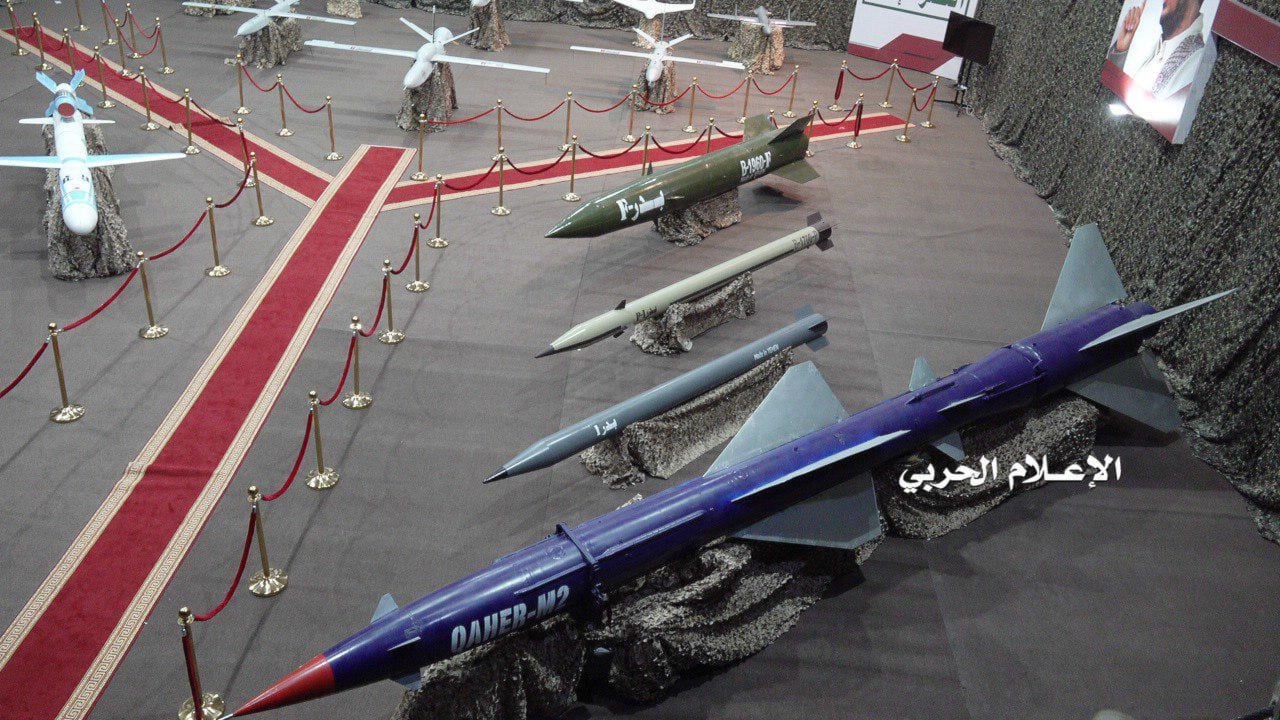
Washington - Saba:
Citing an unnamed Zionist official, the US newspaper "The Washington Post" confirmed that "the Yemeni forces in Sana'a are more technologically advanced than many imagine, and should not be underestimated."
Experts told the newspaper today, Friday: "Sana'a's missiles, rockets and missiles have managed to circumvent Israeli air defense systems." They questioned "how to defeat an enemy armed with a stockpile of cheap and available weapons."
Former Zionist National Security Council official Yoel Gozansky said: "The Yemeni forces in Sana'a want to wage a war of attrition against Israel, and they want to keep firing."
Gozansky added: The cost of the war of attrition, for "Israel," is very high, compared to the drones or missiles launched by Yemeni forces, which do not exceed thousands of dollars, while the cost of each Zionist interception operation is tens of thousands of dollars, at least.
The Zionist official pointed out that the Yemeni forces are capable of winning the battle of attrition against Israel, and the question remains: "How does Israel avoid falling into Yemen's trap?"
For his part, military historian at the Hebrew University in occupied Al-Quds, Danny Auerbach, said: "Yemen is not like the enemies on our borders, as it is more than a thousand miles away from us," and "Yemenis live in a mountainous country and do not have a large infrastructure. Therefore, even if we strike against them, it won't cripple them."
Earlier, former Zionist National Security Council Chairman Giora Eiland warned that the Yemenis "have enough missiles to last for two years." He emphasized that "there is a need to form an international coalition to impose a complete blockade on Yemen." He emphasized that "there is a need to form an international coalition to impose a complete blockade on Yemen."
Maariv had previously talked about three challenges that Israel faces in front of Yemen, the first of which relates to Yemeni military capabilities, and the second level is related to the weakness of qualitative intelligence information about Yemen. The third level is related to Israel's inability to crystallize a "regional climate change policy" and thus form a coalition against Yemen.
Citing an unnamed Zionist official, the US newspaper "The Washington Post" confirmed that "the Yemeni forces in Sana'a are more technologically advanced than many imagine, and should not be underestimated."
Experts told the newspaper today, Friday: "Sana'a's missiles, rockets and missiles have managed to circumvent Israeli air defense systems." They questioned "how to defeat an enemy armed with a stockpile of cheap and available weapons."
Former Zionist National Security Council official Yoel Gozansky said: "The Yemeni forces in Sana'a want to wage a war of attrition against Israel, and they want to keep firing."
Gozansky added: The cost of the war of attrition, for "Israel," is very high, compared to the drones or missiles launched by Yemeni forces, which do not exceed thousands of dollars, while the cost of each Zionist interception operation is tens of thousands of dollars, at least.
The Zionist official pointed out that the Yemeni forces are capable of winning the battle of attrition against Israel, and the question remains: "How does Israel avoid falling into Yemen's trap?"
For his part, military historian at the Hebrew University in occupied Al-Quds, Danny Auerbach, said: "Yemen is not like the enemies on our borders, as it is more than a thousand miles away from us," and "Yemenis live in a mountainous country and do not have a large infrastructure. Therefore, even if we strike against them, it won't cripple them."
Earlier, former Zionist National Security Council Chairman Giora Eiland warned that the Yemenis "have enough missiles to last for two years." He emphasized that "there is a need to form an international coalition to impose a complete blockade on Yemen." He emphasized that "there is a need to form an international coalition to impose a complete blockade on Yemen."
Maariv had previously talked about three challenges that Israel faces in front of Yemen, the first of which relates to Yemeni military capabilities, and the second level is related to the weakness of qualitative intelligence information about Yemen. The third level is related to Israel's inability to crystallize a "regional climate change policy" and thus form a coalition against Yemen.